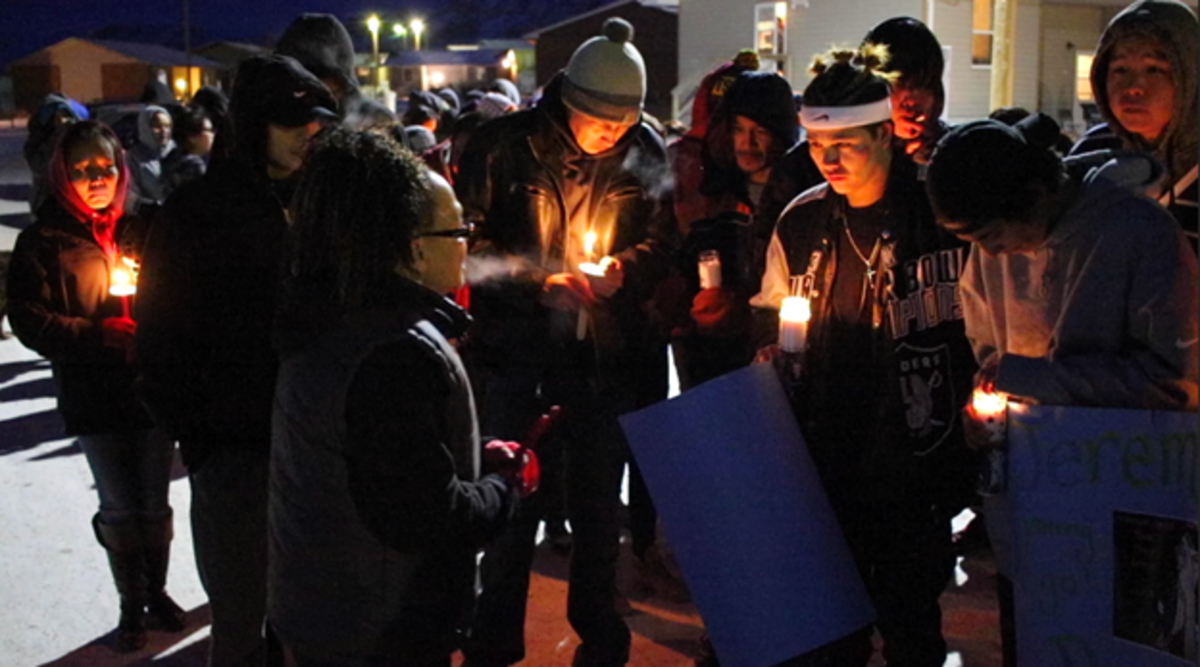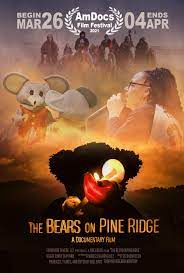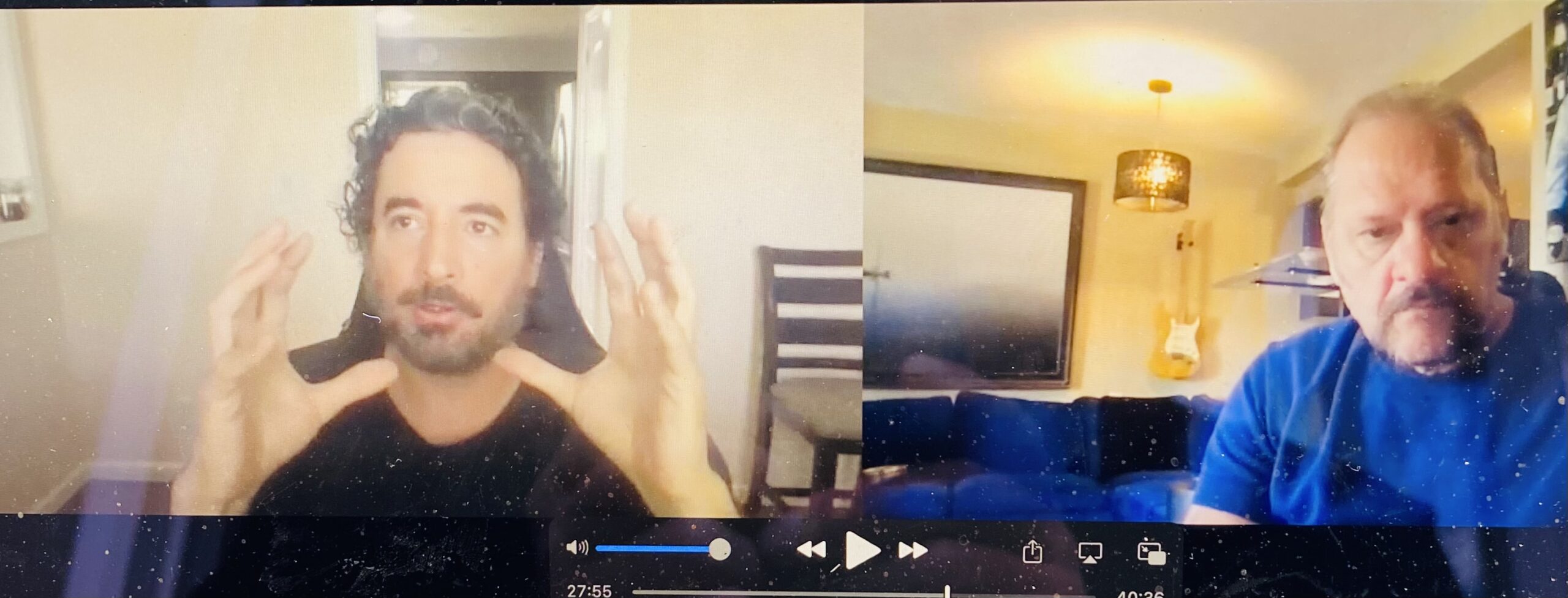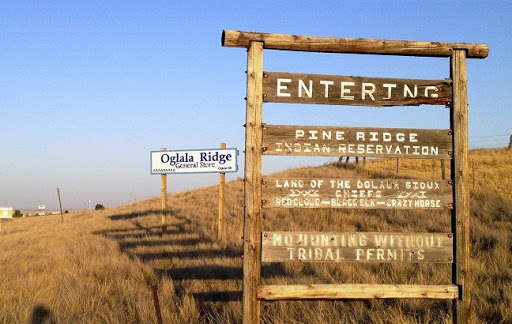We all share a common goal, to have a happy life. Much like a giant redwood tree in the forest, in life we have some of our branches stripped. We can continue to stand tall and to keep reaching higher or we can focus on our missing branches and lose sight of the positives we still have within ourselves and the strength it took to grow this tall. If we were all trees, we would all have the same chance to grow tall and strong… but we’re not and the world is more complicated and more unjust. There are marginalized communities that most of the country has turned their backs on, the Indigenous People, First Nations, American Natives and the proud people living on reservations. I have never forgotten who was here first in this country and that I am still a guest. So why has the government let so many Indigenous down. We are all living in a pandemic but there is another one that hasn’t had the attention it deserves – suicide on reservations. In Canada, suicide amongst Indigenous are 3 times higher than the rest of the population and in the US its 4 times higher. This is a pandemic that requires us as a country to help curve the line. How can we consider ourselves a proud country if we’ve forgotten and ignored the marginalized?
Noel Bass has made a film that is long overdue. The Bears on Pine Ridge is a heartbreaking film that addresses an increased spike in suicide amongst the American Native youths living on reservations. The reservation on Pine Ridge has seen more than 6 suicides in 3 months. It’s incomprehensible and rather than wait for the government to step in, they’ve incorporated their own unique program to stop it at the root. The Bears on Pine Ridge explores the distressing statistics of Native youth suicide plaguing the Pine Ridge Reservation in South Dakota. The film highlights the efforts of the highly respected Oglala Lakota community leader ‘Tiny’ DeCory, who oversees her Native youth performance group known as ‘The Bear Program.’ The program employs the use of life-size mascot bears and other animals that dance and perform comedy sketches for the benefit of Native youth, to empower them and bring joy to their lives of struggle.
I spoke to Noel Bass about this incredibly insightful film. Although it’s American, the issues addressed in the film, mirror our own issues of youth suicide on our Canadian reservations as well. It was screening at the Pendance Film Festival in Canada, so we worked the angle.
HNMAG “Why did you want to make this documentary?”
NOEL “I get asked that question often, sometimes in the early stages of the documentary, the middle to 2 years later. I think a good question is, why aren’t there more people covering it. There are journalist’s that will go through in the summer, when the weathers more pleasant and do these 1-2 day interviews with Tiny DeCory, the main subject in the film, or they’ll cover it from a distance – like a newscaster on the side of the road. There has been coverage on it but in terms of a documentary, where you’re spending years with the community covering the issue. To answer your question though, I went through depression in my twenties and I couldn’t get out of it. There were days where you’d wake up and feel fine, like it was gone and then an hour later it’s back. Because there were those moments of brightness, I thought I could take it on myself. I never took any medication or sought out counselling. In America, there isn’t any free healthcare, so when you’re in your 20’s you have to figure something out and I didn’t want to do that. It started to become part of my identity, I started listening to music that was depressing and began to dwell on it. When you do that, you start shutting out your friends and even family members. It eventually opened my eyes to mental health and I started my own research into psychology to try to figure it out… which led me to the issue of suicide and how Native Americans are 4 times as likely to commit it. That in turn, led me to Pine Ridge because they had been impacted so much and were quite outspoken about it, which led me to the story.”
HNMAG “What did you learn from making this film that you didn’t know before?”
NOEL “I learned about the culture and how the historical things that have happened, are directly related to what is happening now. You can take suicide and mental health and in the western culture, it might be perceived as a unique situation – so let’s take them to therapy, treat them with medication that best suits them and boom, you’re done. In their situations, because its directly related to historical traumas – its impossible to fix… quickly. When you’re stuck in a maze with no exit, it can feel hopeless. When you’re feeling hopeless and the youth are looking at the future and can’t find their direction, because every structure that’s been set up, their education, life of poverty, their family, homelife and social circles has all been damaged. There’s no amount of medication or therapy that’s going to fix that. It’s also an identity issue when these youth look on their phones, they’re able to see the privileged world – the things we have, the travel photos, the new gadgets or people going off to college. They’re watching all these things that they’d like to do… and can’t identify with it.”
HNMAG “Is there any government support or intervention of any kind available?”
NOEL “The problem is that these reservations are somewhat isolated and put on big plots of land. Those plots of land are then surrounded by farm/grazing land for miles and miles. South Dakota is not even on the map for a lot of Americans. The federal government does have the IHS health system, which is the Indian Health System – which they’re responsible for funding but they do such a poor job at it. This is by way of treaty that they’ve signed, to not go to war but instead have peace, in return for your people and generations to come, to be provided with good health care. Once that treaty is signed, America does as little as possible to honour it and in fact have done things to dishonour it – such as taking a big portion of the land back, that was signed in the treaty. They’re allowed to have a casino but they’re built in the middle of nowhere, so many times you’ll find that it’s only the locals that are spending their money there. The majority of their education system is state run and they’re learning the same history as any other kid in South Dakota, instead of any of their traditional history or the atrocities that have happened through George Washington, Jefferson and others.”

Noel continues to inform me that they’re also severely underfunded and many times they’ll get young teachers with little experience and out of their comfort zone, it’s culture shock and they’re gone the next year or sometimes midway through the year. He says it’s the same thing with the hospitals… you’ll have caretakers/nurses there for 3-4 weeks doing their rounds and then they’re off to the next hospital. They just can’t get an established staff to stay because there’s nothing to do there, there’s so many issues and it’s so isolated.
HNMAG “Are reservations able to reach out to the government for more help?”
NOEL “Now that the short film is done, we’re going to make a longer film to touch on some more of these issues. What we’re doing behind the scenes is trying to determine the best way to raise mass awareness. I see the government as more fragile than we think it is. It’s made up of people that were elected and who have promised to help that community or state with their concerns. If you have a large community where the majority is upset about unclean water and they’re largely white, they pay more taxes, they vote regularly and have more affluence, then that puts more pressure on the politicians. The politicians are only going to make changes when their asses are on the line. That to me, is a fragile system without any equality. Unfortunately, the native community doesn’t have a powerful voice in the political arena. It’s a matter of spreading more awareness and people putting more pressure on politicians before you’ll see money being funneled to these communities. Only 20% of Americans are really aware of Native American life in general right now. There’s always going to be people who are going to be marginalized and their issues aren’t being taken care of and it will never go away… until we all care about those issues. If we allow communities to be marginalized or underrepresented, then your issues will continue to be overlooked.”
HNMAG “There’s an extraordinary lady named Tiny in the film; how did you make contact?”
NOEL “Tiny is someone that everybody knows. If you’re doing some shooting, people will be curious and ask what you’re doing. As soon as I tell them I’m making a documentary on Tiny and the bears – their entire demeanor changes. Tiny is not only a lifesaver, but she has her hands in everything. She’s been working with the youth her entire life and she runs the only donation center there and receives donations from Canada, Europe and from all over America. They received coats and winter jackets and they started a prom dress campaign, ‘Say Yes to the Dress’. A lot of youth were getting depressed and having suicide adulations around prom time, because they couldn’t afford the dresses. Tiny got that going and I think her last campaign had over 300 dresses received. They’ve expanded it to suits, tuxedos and shoes, which are all high quality. She does youth programs outdoors and started a veteran’s pow wow, which is in the summertime. She’s like the voice of the reservation and will MC events because she has access to a PA system. She’ll get the crowd going and they’ll start dancing – she’s the spirit of the community and very fun to be around, everybody knows her. Although it was very easy to get to know her, it took a few meetings with her before she agreed to talk and sit down for an interview. By 2015, we became collaborators, in a sense. That’s when we officially started.”

We had to take a break from the interview, while Noel headed into his truck to go get his vaccination shot. Once he returned to the interview, we continued for a few more questions and it gave Noel more time to reflect on an earlier question.
NOEL “You asked me earlier, what did I learn. I don’t think anyone’s ever asked me that, so while I was getting to the truck I had some more time to think about it. I actually felt like I wasn’t proud to be an American. When you’re going into a place and staying/living for 2-3 months at a time and meeting people that have become your family now… you realize how much America has done against them, historically – over and over again. You see how much they’re being neglected and how the institutions are not being supported correctly, which hurts you as an American. It really affects your identity as a country, when a community continues to be affected by historical mistreatments. Another thing I learned was the amazing amount of history – from the boarding schools to the wiping out of their history. I didn’t realize that they were beat for speaking their language in boarding schools. I was also surprised to find out that they were banned from performing many of their spiritual ceremonies. This is a country that prides itself on its freedoms; you’re right to speak and you’re right to choose your religion. They continue to hold Sundance’s in secrecy and away from public in the hills.”
HNMAG “What do you hope the audience will take away from this film?”
NOEL “I want people to be emotionally connected/invested to do more and to educate themselves more. We did some college surveys to get they’re reaction and we found that 90% were unaware that it even existed. They felt betrayed and were upset with their education system because they felt it was kept from them.”
HNMAG “When do you plan to start shooting the feature documentary?”
NOEL “The feature film is just a matter of editing. We didn’t get funding for the short film, so we’re trying to look for funding for the feature because editing can get pretty expensive. It’s going to take a few allowances to get it made.”
Noel had got his vaccine shot that day and was absolutely generous to take the time out of his momentous day to talk to us. It was his first documentary and he stepped up to the plate in a big way. We watch films and documentaries in the hopes that we might learn something from the film. I sincerely hope that much learning and education can come from The Bears on Pine Ridge.


